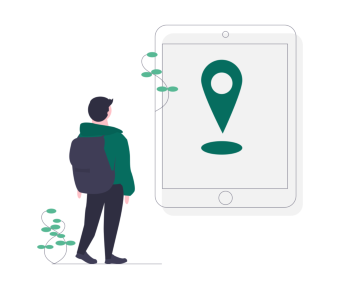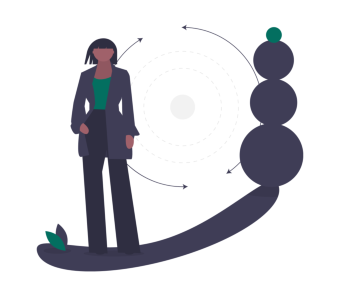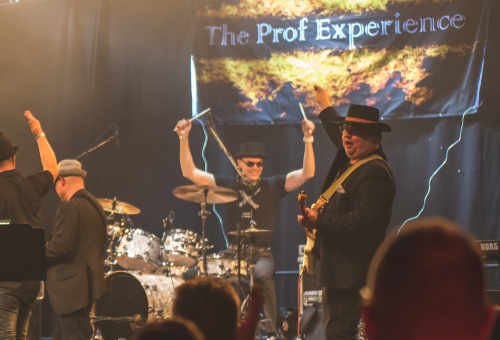OPPORTUNITIES FOR exchange
ECIU offers a variety of different exchange programmes to both academic and administrative staff members. Teachers can participate in challenge-based learning, there is a staff mobility programme, a research programme and a leadership programme.
STAFF MOBILITY PROGRAMME
 Within ECIU, supporting staff can go on exchange to other universities.
Within ECIU, supporting staff can go on exchange to other universities.
Please contact Yael Veenstra-Konzizky for more information or check the staff mobility website of the UT and check out what the possibilities are.
LEADERSHIP PROGRAMME
 One of ECIU's flagship programmes is the Leadership Development Programme. It offers university employees a chance to work on pressing issues that their university faces in an international setting. The programme runs for 13 years and has more than 250 alumni.
One of ECIU's flagship programmes is the Leadership Development Programme. It offers university employees a chance to work on pressing issues that their university faces in an international setting. The programme runs for 13 years and has more than 250 alumni.
Harry de Boer and Jon File of the UT’s Center for Higher Education Policy Studies (CHEPS) are the instigators and head lecturers of the Leadership Development Programme.
‘It is like a travelling circus, in the positive sense of the word,’ they say. ‘Every host university selects a project that it wishes to discuss,’ De Boer explains. ‘A university is a complex organisation. Our goal is to bring people closer together. During the LDP, the head of finance will meet a professor of electronics, for example. What connects them all is their interest in leadership at the university. These are people with potential and curiosity.’
The fact that the collaboration that takes place during the LDP is both intense and fruitful is evident from the reunions that are regularly held. ‘Two or three groups still meet up often,’ De Boer says. ‘Those people all became close friends. ECIU strives to build a community and bring universities into contact with each other. The Leadership Development Programme contributes to that goal, which makes it one of the ECIU’s showpieces.’
RESEARCH MOBILITY PROGRAMME
 ECIU launched in February 2018 a Research Mobility Fund, aiming to increase collaboration amongst its researchers. This mobility fund is an incentive for early career researchers to explore and deepen collaboration within the ECIU network.
ECIU launched in February 2018 a Research Mobility Fund, aiming to increase collaboration amongst its researchers. This mobility fund is an incentive for early career researchers to explore and deepen collaboration within the ECIU network.
Asta Pundziene, Vice Rector for Research and Professor at Kaunas University of Technology, is one of the initiators. ‘Spreading of diverse knowledge and experience is most of the time a stimulus for innovation. Innovation is within the DNA of ECIU, and as well as in each member university. We perceive the Researcher Mobility Fund as an excellent tool to accelerate knowledge and experience diffusion among the researchers, especially those of early career, resulting with joint research activities that leads to their career advancement as well as breakthrough innovations.’
‘The old school way of visiting someone is great’ To Professor Esa Räsänen from Tampere University of Technology, visiting another scientist is the best way to boost a collaboration. In October 2018, he made use of the ECIU Research Mobility Fund and visited his colleague, Professor Philip Moriarty, at the University of Nottingham. As both scientists and avid musicians, they’ve started working together on researching the science of drumming.
What was the reason for your visit to Nottingham?
‘I’ve got to know Professor Philip Moriarty three years ago, when he posted a YouTube video about the science of drumming. In that video, he was also praising our work in Tampere. Since then, we stayed in touch and I was planning to visit him in Nottingham.’

And you thought the ECIU Research Mobility Fund was the right tool for that?
‘Indeed! The possibility was advertised at my university last year. And from a meeting in Brussels, I was already familiar with the ECIU network. To me, this looked like the most optimal tool to meet up with Philip. Applying to this fund was very straightforward and easy, by the way.’
How was your experience in Nottingham?
‘It was one of my personal highlights of last year. I was there for one week in October. In such a short amount of time, we had to make it a very efficient week. Now, we have many ideas for joint publications on the science of music that are likely to get a lot of media attention.’
Sounds interesting, the physics of drumming…
‘It is! One of our main findings was that an audience likes it when drummers make “mistakes”. So, fractal fluctuations in the beats of musical rhythms make the music sound more “human”. Now, we’re taking that idea a bit further and are studying what happens in the brain when someone is drumming. So, the question is: how does information travel from the brain to the hands? What’s fascinating is that Nottingham has a very cool and “hands free” MRI tool – a sort of a hat that still allows you to move around and is able to measure the electronic pulses in the brain. While we in Tampere are strong in numerical and data analysis. That way, we can combine our respective strengths.’
So, 1+1=3?
‘Exactly. I love the multidisciplinary approach.’
What are your plans for the future?
‘We have already started to involve students in our project and we hope we can also start sending students to Nottingham. Vice versa, that’s already happening, as the first group of students from Nottingham is visiting us in Tampere already in April. So there’s a clear educational gain that we’re working on. And we also hope that our collaboration leads to more joint publications. In the end, one week in October was a great start, which reminded me that the old school way of visiting someone is great.’
 Within ECIU, supporting staff can go on exchange to other universities.
Within ECIU, supporting staff can go on exchange to other universities. One of ECIU's flagship programmes is the Leadership Development Programme. It offers university employees a chance to work on pressing issues that their university faces in an international setting. The programme runs for 13 years and has more than 250 alumni.
One of ECIU's flagship programmes is the Leadership Development Programme. It offers university employees a chance to work on pressing issues that their university faces in an international setting. The programme runs for 13 years and has more than 250 alumni. ECIU launched in February 2018 a Research Mobility Fund, aiming to increase collaboration amongst its researchers. This mobility fund is an incentive for early career researchers to explore and deepen collaboration within the ECIU network.
ECIU launched in February 2018 a Research Mobility Fund, aiming to increase collaboration amongst its researchers. This mobility fund is an incentive for early career researchers to explore and deepen collaboration within the ECIU network. 
